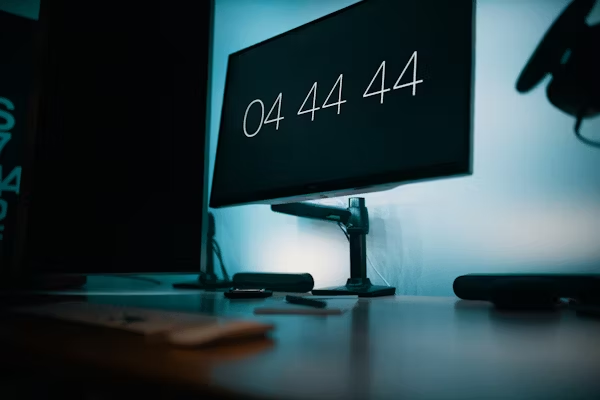In today’s connected world, IP addresses are the invisible threads that keep the internet running smoothly. Most of us never think twice about them, yet each one carries a story of its own. One such address that has sparked curiosity is 185.63.253.2001. At first glance, it might look like just another random sequence of numbers, but is there more to it? Could it be tied to a server, a network, or perhaps even a larger digital infrastructure?
This article explores the layers of information surrounding 185.63.253.2001, explaining what IP addresses mean, how they work, and why a specific address like this can attract attention in the tech world.
What Exactly Is an IP Address?
An IP (Internet Protocol) address is like a digital home address for devices on the internet. Every computer, smartphone, or server that connects online uses an IP address to send and receive data. Without it, communication over the internet would be impossible.
There are two main types of IP addresses: IPv4 and IPv6. IPv4 addresses look like four sets of numbers separated by dots (for example, 192.168.1.1). IPv6 addresses are longer and designed to handle the growing number of internet-connected devices. Interestingly, 185.63.253.2001 appears to mimic the IPv4 format but contains a slight twist—it seems to include an extra digit in the last block, which raises questions about its authenticity or purpose.
Why Does 185.63.253.2001 Stand Out?
Most IP addresses go unnoticed, but when a particular address like 185.63.253.2001 draws attention, it’s often because of unusual activity, speculation, or technical interest. For example, some IPs become famous because they are tied to specific organizations, online services, or even mysterious online phenomena.
In this case, the sequence looks almost like a regular IPv4 address but doesn’t fit the standard format perfectly, which leads to curiosity. Is it a typo? A symbolic representation? Or perhaps a special configuration used in private networks or experimental projects?
How IP Addresses Are Used in the Real World
To understand why certain IPs stand out, it helps to know how they function in everyday life. Businesses use IP addresses to host websites, data centers use them to manage massive amounts of online traffic, and individuals use them without even realizing it.
An IP like 185.63.253.2001 might be tied to:
A server hosting online content.
A test address used by developers.
A placeholder in documentation.
A private or internal network experiment.
Without proper lookup tools, it’s hard to determine its exact role, but the intrigue lies in the possibilities.
Tracing the Origins of an IP Address
There are ways to investigate an IP to learn more about it. Tools like “WHOIS” can reveal which organization owns a block of IP addresses, while geolocation services can estimate where the server might be located. However, an unusual address like 185.63.253.2001 may not return standard results, adding to its mystery.
This raises an important point: not all IPs we see online are active or valid. Some may exist for technical reasons, while others might be incorrectly formatted but still appear in discussions or documentation.
The Technical Oddity of 185.63.253.2001
In a typical IPv4 address, each section (called an octet) ranges from 0 to 255. That means an address ending in “2001” doesn’t fit the rules—it’s too large for the final segment. This could mean:
The address is intentionally fictional.
It’s an example used to explain IP concepts.
It represents a deeper technical purpose, possibly linked to IPv6 or hybrid addressing systems.
For tech enthusiasts, these deviations are fascinating because they open up discussions about how digital systems are designed and how they evolve over time.
IP Addresses and Cybersecurity
Another reason certain IPs gain attention is their potential link to cybersecurity concerns. Hackers, bots, and malware often operate through specific IP addresses, and researchers track these to identify patterns. Could 185.63.253.2001 be part of such a narrative?
While there’s no evidence to suggest malicious activity, its unusual nature means it could be a good example for cybersecurity training—showing how to question and analyze suspicious-looking data.
The Future of Internet Addressing
With billions of devices coming online, IPv6 is slowly replacing IPv4. Addresses like 185.63.253.2001 highlight why this shift is necessary. As more numbers are needed, creative solutions and new formats emerge, pushing the boundaries of how we think about internet addressing.
This also hints at a broader truth: IP addresses aren’t just numbers; they are milestones in the evolution of the internet, each one representing a small piece of a much larger puzzle.
Conclusion
The intrigue around 185.63.253.2001 shows how even something as technical as an IP address can spark curiosity and imagination. Whether it’s a formatting anomaly, a symbolic placeholder, or a window into the future of internet infrastructure, it reminds us that the digital world is full of mysteries waiting to be explored.
FAQs About 185.63.253.2001
1. Is 185.63.253.2001 a real IP address?
It doesn’t follow standard IPv4 rules, so it may be fictional or symbolic.
2. Can this IP be traced to a location?
Probably not, as invalid IPs usually don’t map to physical locations.
3. Is it related to IPv6?
Not directly, but it may conceptually represent the need for expanded addressing systems.
4. Could it be dangerous to visit such an IP?
Unlikely, but connecting to unknown IPs is generally not recommended for security reasons.
5. Why do people discuss unusual IPs like this?
They spark curiosity and help explain how internet systems work.
6. Will IP formats like this become common?
No, standardized formats will continue, but unusual addresses can appear in testing or documentation.


